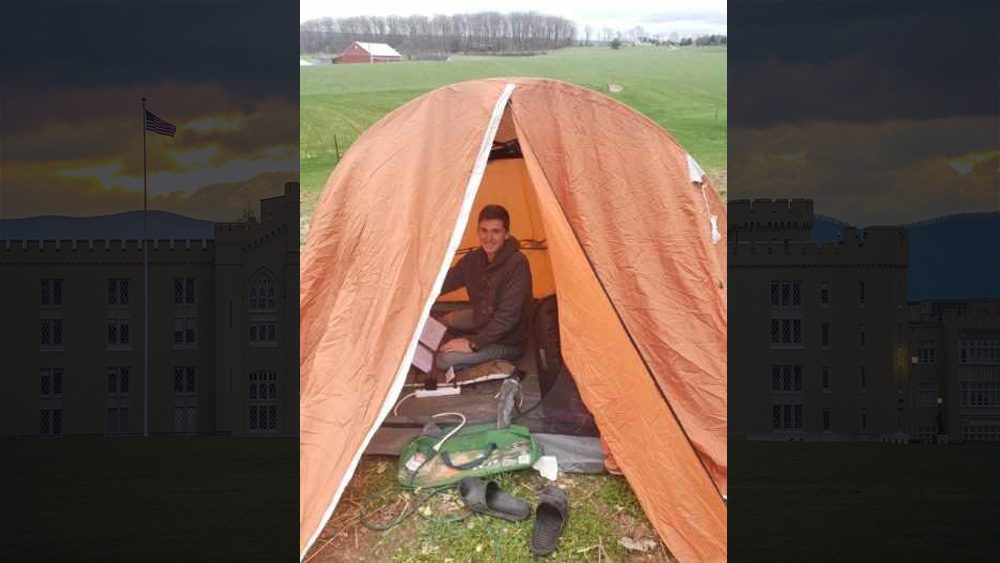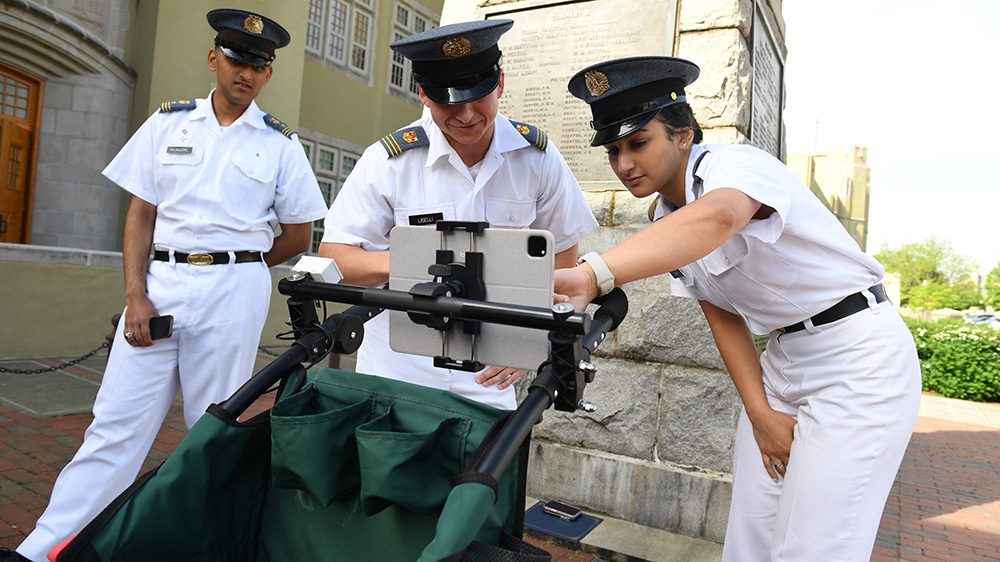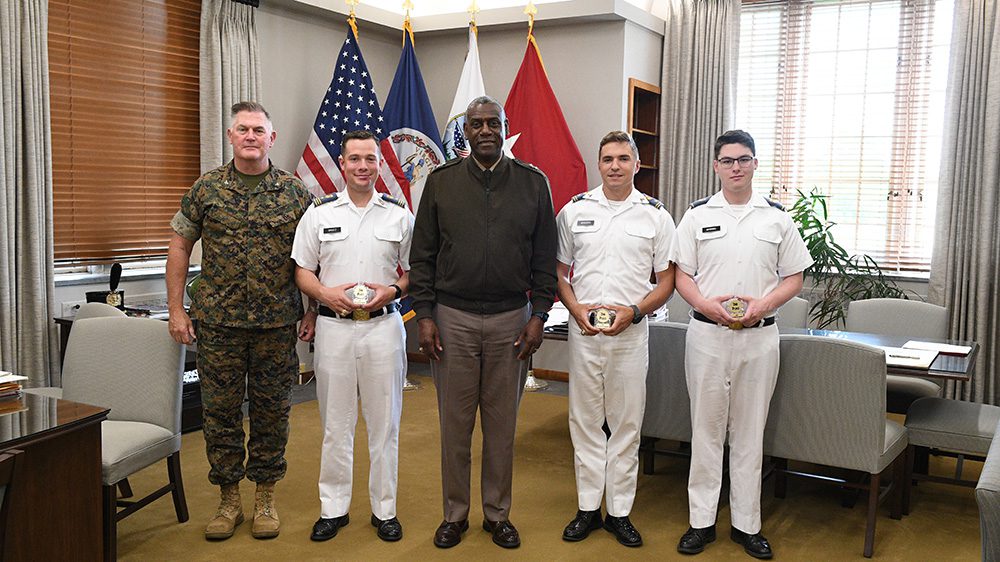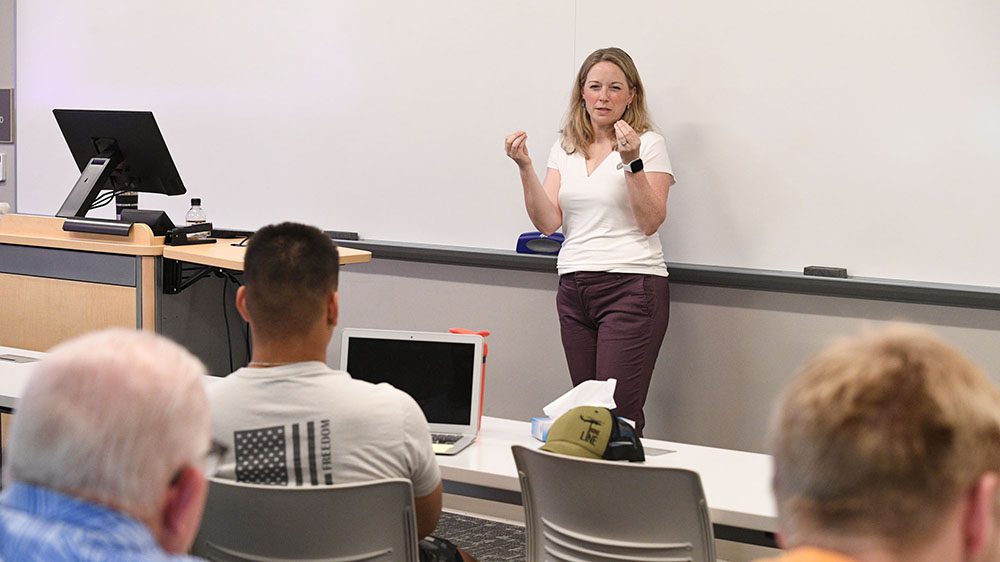Word about the effects of COVID-19 on the remainder of the spring semester rippled through the Corps even before cadets received official notice. As the information spread, half the Corps rejoiced, happy to get away from the regulations of the Institute – while the other half was overwhelmed by dread as the reality missing their BRs set in.
The 1st Class cadets especially had to combat the disappointment of not having the graduation activities they had been anticipating for three years. They were left thinking about the good-byes they never got to share and wondering when they would see their BRs again. Many have accepted the change now, though, and are continuing forward with excitement as they prepare for the next phase of their lives.
The Corps is learning online and persevering through the transition, and they are continuing to work hard and not give up.
Cadets are now acquainted with the Zoom app, which is a group video call software. Most professors who have chosen to conduct synchronous classes use Zoom. For cadets, the synchronous classes are probably the hardest to work through, as many live in different time zones. Cadets in the western U.S. need to wake up before 5 a.m. Pacific time for their 8 a.m. classes on the east coast.
“I have a Zoom class for thermodynamics at 6:15 a.m. every Monday, Wednesday and Friday,” said Cadet Alexis C. Motko ’22, who is in Page, Arizona. “It’s a little rough on those mornings, but what I find hardest about the time difference is that all of my assignments are due by 2100 [9 p.m.] rather than midnight. So, I lose some of the time that I could have to work on those assignments.”
While some professors are holding synchronous classes, others are assigning independent work with deadlines throughout the week.
Cadets living in areas with spotty internet connection are also facing challenges. Cadet William Taylor ’22 lives on a farm in Pennsylvania and has no WIFI at his house. He got a hotspot on his phone and searched for the area best signal. That place turned out to be in the middle of a field next to his house. So, he set up a tent, put a table and chair inside, and set up his study space for online classes.
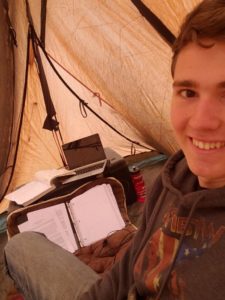
Cadet William Taylor ’22 takes classes inside a tent in Lebanon, Pennsylvania.
“If there is one thing VMI taught me, it’s to figure it out if there is a challenge. I’ve learned my challenge is my problem and no one else’s. Well, that’s what I had to do when we were told that we had to learn at home. Not having internet in the house and only being able to get strong enough cell service at one spot outside made me do the only things plausible: Set up a tent in my field and learn from there,” related Taylor, who is in Lebanon, Pennsylvania. “It’s been kind of rough with the Pennsylvania weather, it’s been cold and windy and I even had my tent flood once (I did a hasty retreat and evacuated all my stuff out in time). But I have been able to accomplish most of my schoolwork, which is the main goal. I have four younger brothers, living in a pretty small house. Honestly, going out to the tent is the most peace I’m going to get at home – even though the goats, sheep, chickens and cats still bother me a little.”
Cadets who see Taylor on video calls often see him trying to stay warm in the cold Pennsylvania weather and hear him telling his chickens to quiet down. Despite being in a tent for a couple hours every day, he continues smiling and inspiring others to find the blessings in each day.
People around the world are struggling to keep their spirits up as social distancing begins to weigh on them. Cadets, however, have been combating the negative emotions by staying in touch with each other. Roommates have been talking regularly over video calls. Cadets are also challenging their friends to various physical fitness challenges circulating throughout social media, like 10-mile runs or 10 push-ups. Cadets have also found ways to continue regular group meetings over Zoom. For instance, a group of cadets meet in a prayer group every night like they did when they were on post.
Other cadets have reached out to help their local communities. Cadet Vincenzo Ferrari ’21 has been volunteering at a food pantry, packaging and giving out food to families who cannot afford to buy food at the grocery stores. He has also helped deliver bags of food to elderly members of his community so that they do not have to risk going out to the store themselves.
In these hard times, cadets are persevering through schoolwork, staying in touch with each other and reaching out in any way they can whether by volunteering in their community or encouraging people in other ways through technology. Cadets are not strangers to feelings of fear and anxiety. They are strong and have the capability to adapt to change quickly. While these are uncertain times, cadets stand ready to persevere through the storm.
